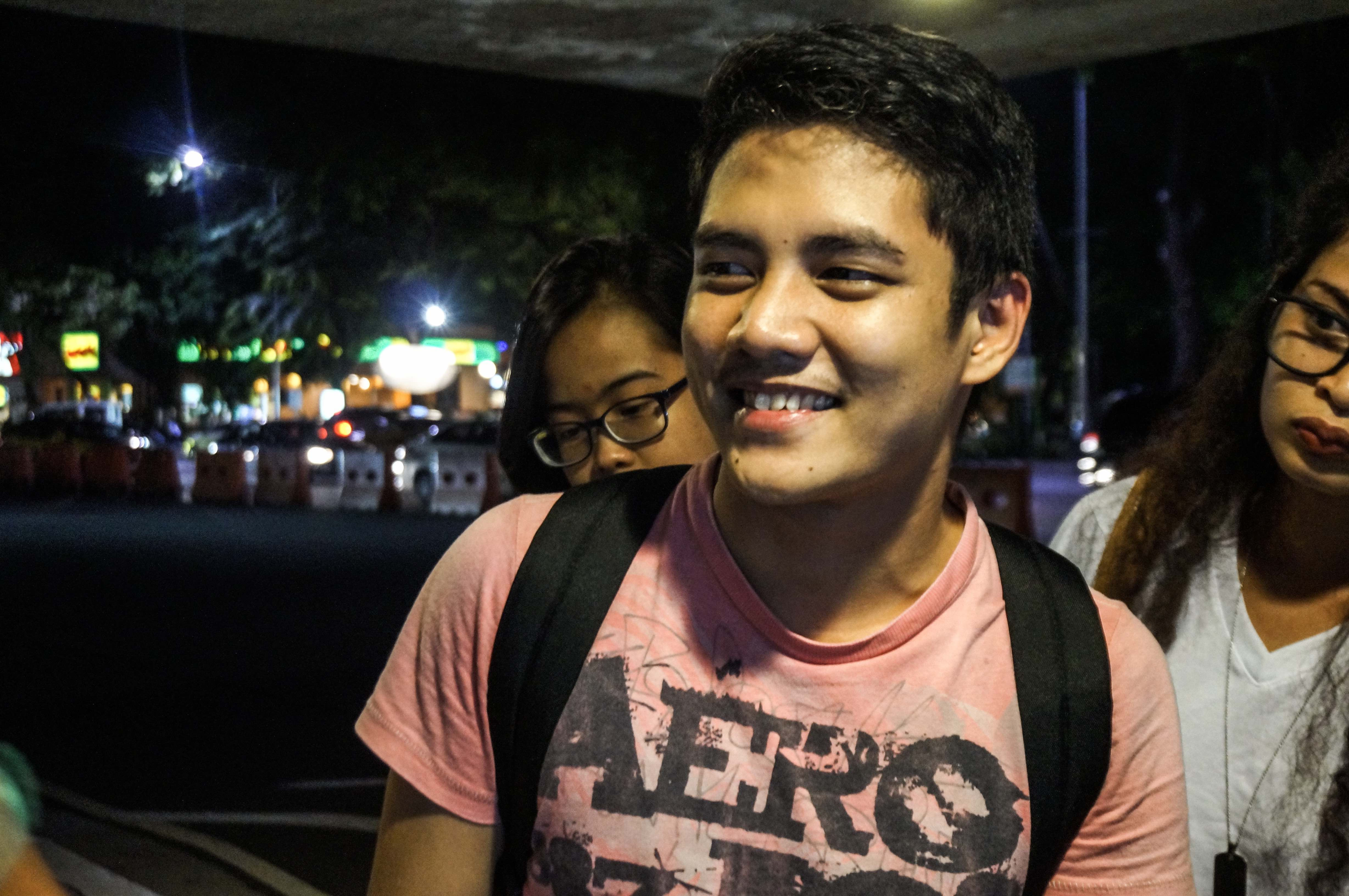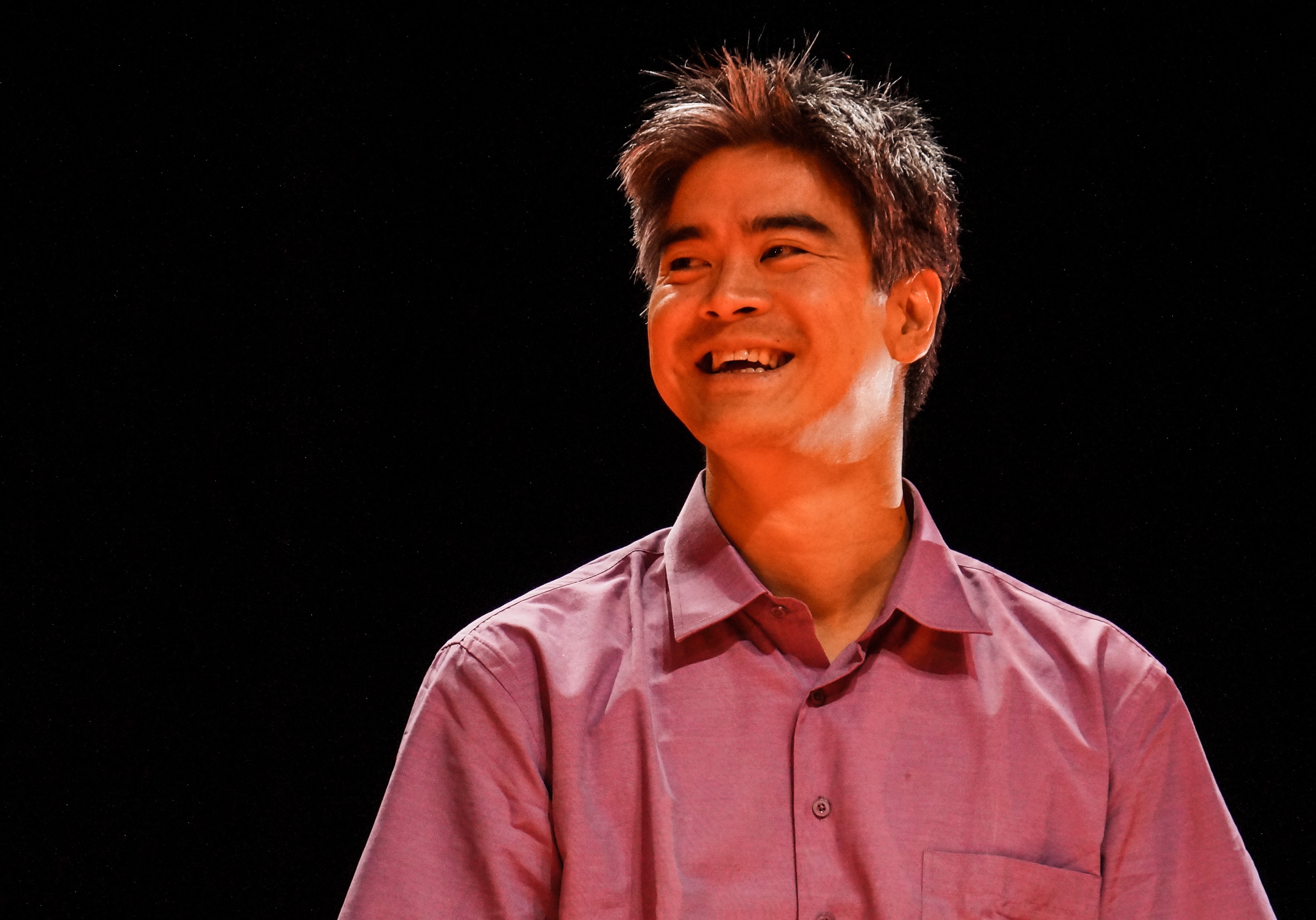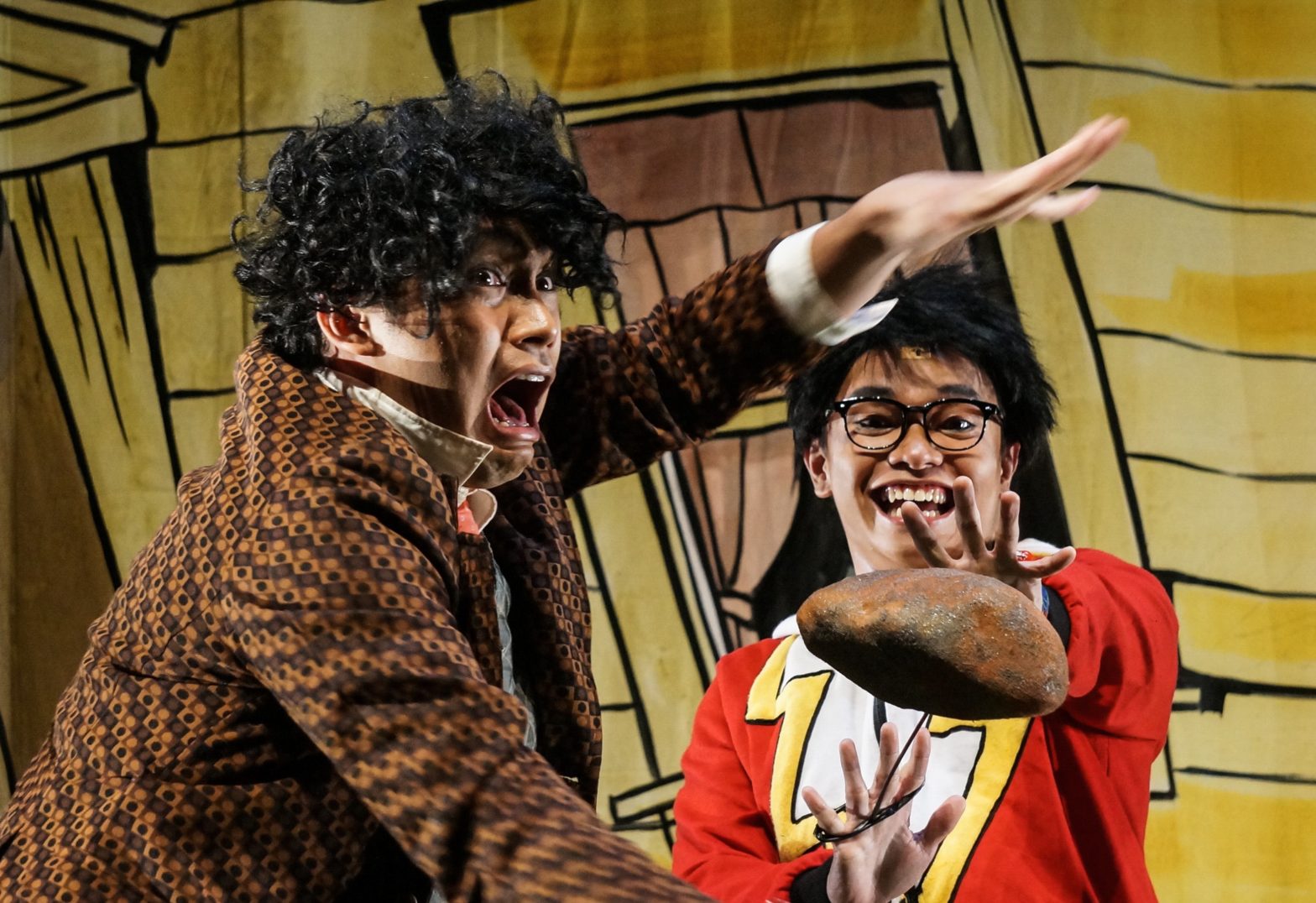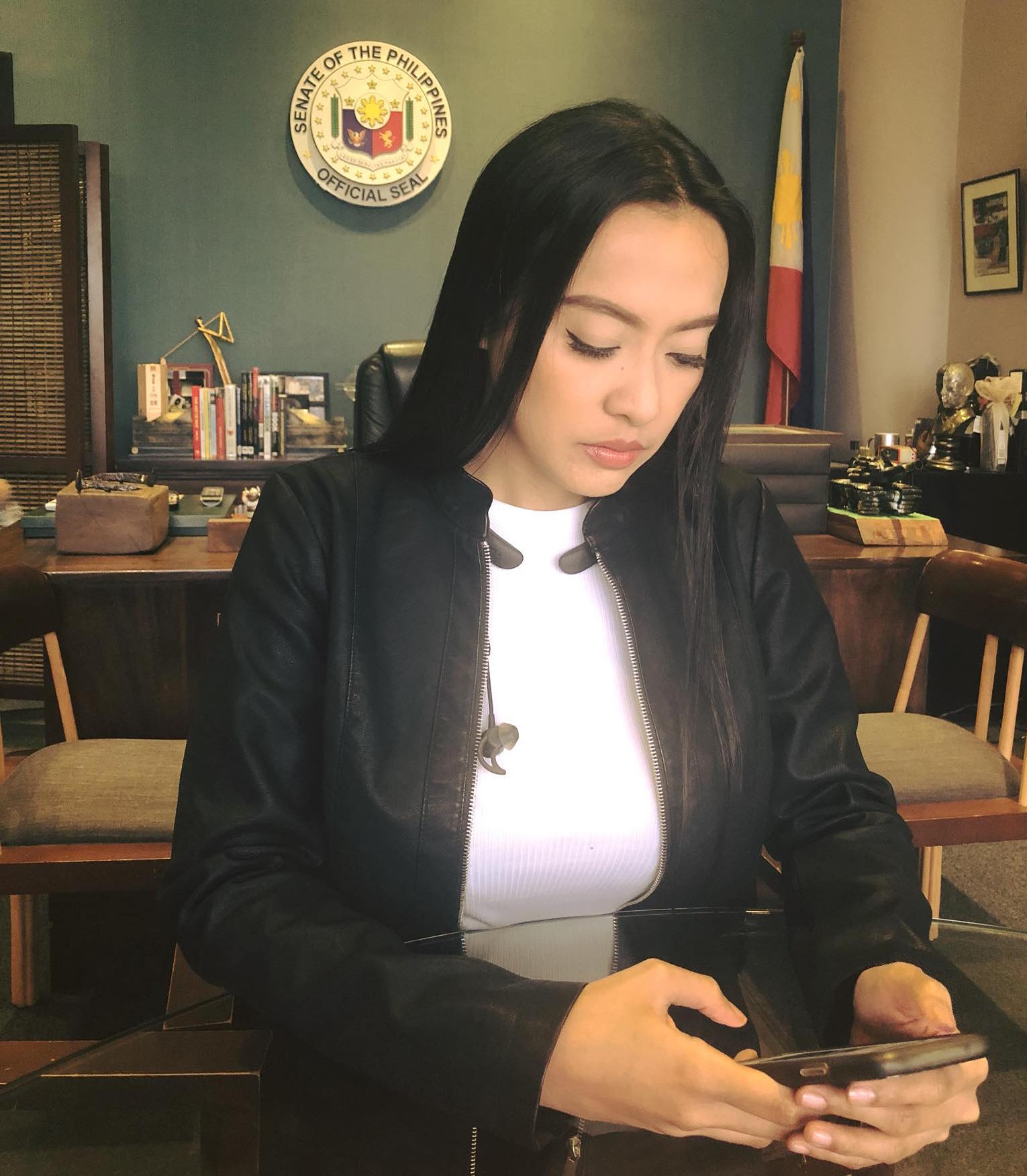[metaslider id=48279]
Text and photos by ARIANNE CHRISTIAN TAPAO
HARNESSING their superpowers, siblings Violet and Bruce Wong embark on a space journey to save the universe from the planet-eating Space Chupacabra.
But there are other negative forces to fight, including one from within: The pressure to conform, partly because of their Asian-American heritage.
In the end, the duo proves that being different—nerds, superheroes, Asian-American—doesn’t mean any less.
The 11-day run of “The Wong Kids in The Secret of the Space Chupacabra, Go!,” the theater opus of Lloyd Suh (playwright) and Ralph Peña (director) of the New York-based Ma-Yi Theater Company, debuted Thursday at the Cultural Center of the Philippines with members of a sector that knows how it is to be different prominently in the audience.
The actors played out to a crowd made up mostly of members of the Deaf community in both their 2 p.m. and 8 p.m. shows.
Sign language interpreters (SLI) John Xander Baliza and Bayani Generoso, both from the De La Salle-College of St. Benilde (CSB), stood to one side of the stage using Filipino Sign Language (FSL) that helped Deaf theater-goers experience in full the riveting fantasy adventure that doubles as an ode to sibling love.
Although only last Thursday’s show had SLIs and the rest won’t, it was considered a big milestone for Philippine theater and the Philippine Deaf community.
“Arts, like theater, can bring people together. That’s one of the very important things that we did tonight,” said Henrico de los Santos, executive director of Catholic Ministry to Deaf People (CMDP) that thought of providing SLIs for the much-acclaimed New York play.
The CMDP convinced benefactors to shoulder the tickets of students from public schools’ special education centers. The proceeds will go to CMDP, which provides counseling services to Deaf people on abuse prevention and treatment. The ministry supports around 100 Deaf student scholars.
Baliza said the play’s overarching theme—being different in society—was relevant to the Deaf community.
“For the longest time Deaf people have been trying to fit into the hearing community,” said Baliza. “This is a great lesson to them to be themselves and they don’t have to pretend to be someone else.”
Baliza and Generoso had rehearsed with the cast to be able to mirror their blocking to the dialogue and cinematic portrayal.
“It’s a production in itself,” Generoso said.

Deaf student Jaime Abata Jr. came out of the theater all smiles.
The play was “very beautiful,” he said through Baliza. “The interpreters were really lively and they really matched what’s happening onstage. “It was very exciting to see (FSL) being used.”
CSB and other groups have been advocating to make FSL the national and official Deaf language. (See Kinds of sign language in the Philippines). But the enactment of an FSL law was stalled in previous Congresses.
De los Santos said he hopes the play’s message will resonate with the Deaf and encourage them to contribute to society and “not just relegated to the sides.”
In the play, for instance, the dinosaur-like antagonist Bandersnatch (Jonathan Tadioan) asks Bruce (Aldo Vencilao), “Would I like to have friends?”
The baffled 11-year-old replies, “No?”
“Yes!” the spike-adorned monstrous villain answers in jest. “It’s just that I don’t have great social skills and fine, I have weight problems but that doesn’t mean I don’t have feelings!”
Indeed, the genius of the play lies in its characterization and dialogue.
“Much of what motivates their antagonism is feeling different themselves,” Suh said. “Every character does feel like they’re the only ones who can understand themselves.”

He said he felt the same discrimination growing up Asian-American.
“While I was writing a play, I just remember those emotional times in my life and just remember what it felt like,” he added. “This is a play that I wrote in particular to hopefully speak to people who feel different.”
Thirteen-year-old Violet (Blanche Buhia), for example, struggles with her Asian-American descent and being labeled a nerd. Should she stay in the comfort of being alone or should she move forward? The stage turns pitch black, Violet makes a defining choice and the rest follows suit.
How director Peña localized a play originally made for an American audience and that retained the English language for the Manila production was critical.
The crowd’s blaring laughter at comedic expressions such as “Pak Ganern!” and the remarkable portrayals by genius actors who delivered punchlines with just right blend of facial expressions attests to his success.
Theater-goers, however, did have to turn on their imagination to fully appreciate the story because of the minimalist production. But largely thanks to the creative use of puppets, the audience was drawn into the Wong siblings’ out-of-this-world escapade: From rock lifting and interplanetary teleportation, to riding a giant dragon and fighting the Space Chupacabra, a lifesize planet-gobbling Pac-Man.

Like most children’s shows, the play ends on a happy note.
The conflict between brother and sister, who exchange “I hate you’s!” early on in the play, culminates in their telling each other, “I love you!”
Suh deliberately put that in, saying how rare but powerful it is for siblings to utter those words at that age.
“It’s coming around to this moment, after what they’ve gone through, to be able to have that moment of being honest enough,” he said.
Indeed, in the hubbub of giant debris, colorful costumes and comedic lines that the children’s play offers to the Deaf community, this theme of accepting who you are and turning it into your strength rises above all as the most important lesson.
What one makes out of that difference is what counts. Said Suh: “It’s a matter of appreciating yourself, your uniqueness.”

